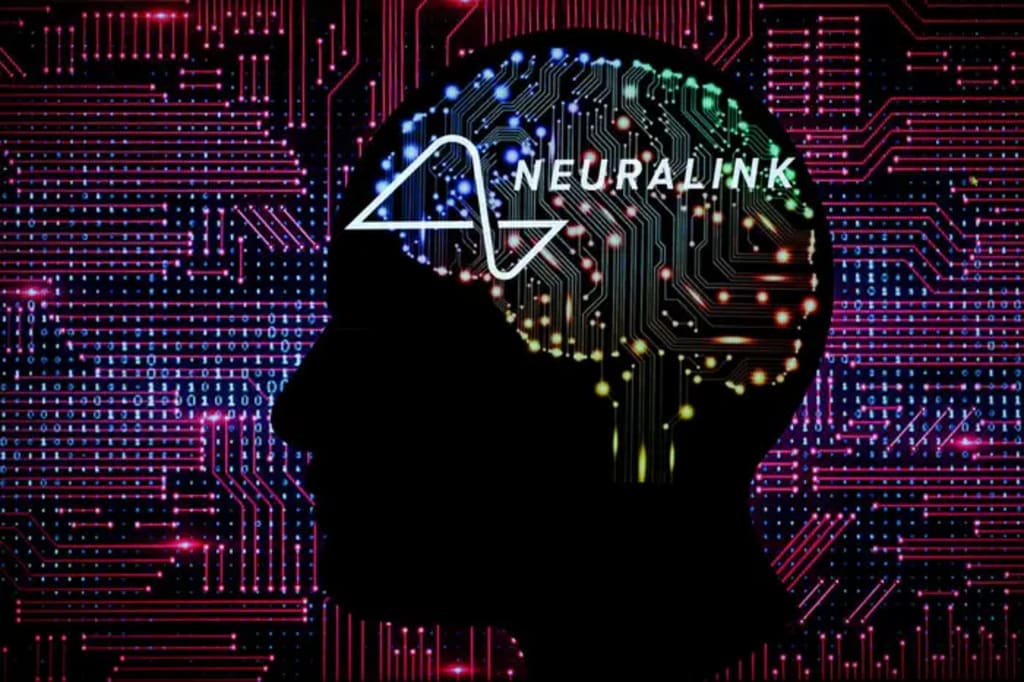NeuraLink: An issue of agency
An option, not a solution

When Elon Musk announced that his new company Neuralink, was going to be working on a implantable device that would aim to provide an Neuro-interface that could possibly help those with severe Neurological damage or conditions like Paraplegia regain movement in their arms and legs, there was a lot of positive response from the wider community, but for disabled people ourselves, the response was far more complicated.
I was born in '96, and growing up with a disabled father, I witnessed the gradual but noticeable societal shift in attitudes that was happening towards disabled people. When it came to my dad, the personal response to him was one of compassion, but the societal attitude was anything but, with a lot of the expectation coming from the media, politicians and others in authoritative positions being that my dad was someone to be "fixed". When I turned around 15 in 2011, the societal attitude became marginally more compassionate, at least in rhetoric, that my dad no longer needed to "fix" himself but instead shifting the onus of changing his circumstance of life onto society. In other words, my dad no longer needed to "fix" himself, but society needed to "fix" him.
Then when I turned 18, and my health started to collapse into a full-blown neurological condition, not terribly different to what my dad experienced, my experience was briefly a positive one where there was body-positivity and that the expectation on me wasn't to be fixed but instead that society should support me in any way possible. I started to see shifts in the workplace that my father would have benefitted from, and more and more public spaces were installing ramps and railings, etc. All things I got to benefit from, but my dad didn't since by the time society had finally started to show signs of adapting, my dad had already died.
We now live in a different world, where technological corporations are targeting disability in very different ways, for example, Google and Meta are running with the 2014 attitude, and investing more more accessible features for disabled people, in a sense, trying to make the virtual world line up with how the real world should be. Then you have Elon Musk with Neuralink who have managed to create a solution, but has raised more ethical problems than what it solves.
Moving Forwards by going backwards
The aim of Neuralink on its surface is a positive one, to try and cure physical disablement from neurological conditions and damage. But its clear to me as someone with a Neurological condition, that no one consulted in the disabled community in any meaningful sense. If you ask pretty much any disability-advocacy charity whether they be for the deaf, blind, physically impaired, etc. A cure is not a solution, it's only an option.
In the case of NeuraLink, its a option for disabled people who have money, and a lot of it. Which given that disabled people's main point of inaccessibility to society is the workplace, a majority of disabled people in any country around the world are poor or middle class. They are not in the catchment area for something like Neuralink. At best, what Neuralink has done is create a option that is physically out of reach for anyone who would want it. A situation that is all too familiar for someone whose been in a chair for most of their life.
Musk's attitude of viewing disablement as a problem to be fixed on the individual level through medical implants is going to create a dividing line between disabled people with money and those without. Which again, I'd hazard an educated guess that of the 1.3 Billion disabled people around the world only 10,000 people (most living in the western world) have the kind of money that would put them in the market for Neuralink.
An issue of agency
The issue with treating disability as a individual issue to be fixed, is that it gives society an excuse to not progress in any practical sense. By creating a solution with a price tag, you in essence create a narrow market for potential liberation. But you also levy all the pressure back on the shoulders of disabled people. Like I've mentioned before, disabled people don't have the money for NeuraLink but there's another issue, would a disabled person, even want Neuralink.
In the conversations I've had with able bodied people, I would hazard a guess that most people would think that if you have a disability or you've been diagnosed with something that could leave you disabled. The immediate next step is "how do I stop it" or fix it. But of the 1.3 Billion people around the world, 60% of them were born disabled. They've lived decades of their life only knowing the life they have. Why would they want to change that?
Whose decision is it as to how much disability a person has or doesn't when it becomes a choice? Much like how I view bodily autonomy for women, I think what happens to or doesn't happen to a disabled person, is their own decision and that society should give them options of support. Rather than pointing to a device that isn't even out of the trials yet as the new thing you should get to fix your life to make society more comfortable with your existence. Support disabled people in whatever way they see fit, if they're in the catchment area for Neuralink and want it, support them in that, they've got a long road of recovery ahead of them. If they don't want Neuralink, consider still making adjustments to the workplace, public transit and public life to ensure that they are able to have a long and happy life.
There are many disabled people that regardless of the disability they have, if you ask them "if there was a pill you could take that would cure you, would you take it" the answer might be no. They might be comfortable being in a chair, or being blind, or being deaf. They're resilient and the last thing I think they'd want was to up-end their life in a completely different direction to the one they're used to.
I personally, wouldn't take Neuralink even if I had a billion dollars and could afford it. Simply because, as "bad" as my life looks to an able bodied person, I'm actually happy in my life. I wouldn't want to up-end or U-turn my life just for the sake of fitting in. I don't think people should be aiming to fit in, diversity of viewpoints is crucial for the world. And I know personally, that if I were coerced into fitting into a able-bodied box, I would not be happy and my self-image would not be the same, it would be needlessly up-ended for no good reason other than the profitability of a man who I'm convinced doesn't actually care about the lives of disabled people.
About the Creator
Quaker-nomics
My name is Abe, I'm a 3rd year Business Economics student mainly specialising in Alternative Business structures like Co-operatives and Accessibility. I mainly write about Business, Politics, Sociology and some personal stuff.
He/him






Comments
There are no comments for this story
Be the first to respond and start the conversation.